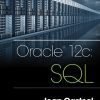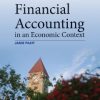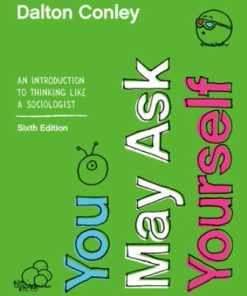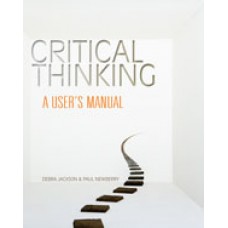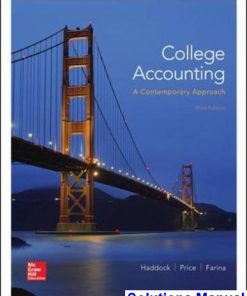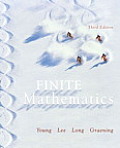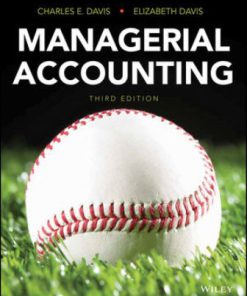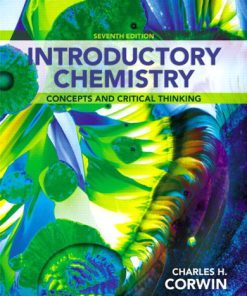Solutions Manual for Thinking Like an Engineer 3rd by Elizabeth A. Stephan 0133808483
$35.00 Original price was: $35.00.$26.50Current price is: $26.50.
Solutions Manual for Thinking Like an Engineer 3rd by Elizabeth A. Stephan 0133808483
Solutions Manual for Thinking Like an Engineer 3rd by Elizabeth A. Stephan 0133808483
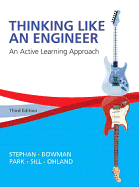
Product details:
- ISBN-10 : 0133593215
- ISBN-13 : 978-0133593211
- Author: Elizabeth A. Stephan
Thinking Like an Engineer: An Active Learning Approach, Third Edition, is specifically designed to utilize an active learning environment for first-year engineering courses.
MyEngineeringLab for Thinking Like an Engineer is a complete digital solution for your first-year engineering course. MyEngineeringLab is an online homework, tutorial, and assessment program that truly engages students as it offers customized, self-paced learning with instant feedback. Students will be prepared ahead of class, allowing you to spend class time focusing on active learning.
Table contents:
Part 1
Engineering Essentials
Engineering is an . . . Itch!
Chapter 1
Everyday Engineering
1.1 Choosing a Career
1.2 Choosing Engineering as a Career
1.3 NAE Grand Challenges for Engineering
1.4 Choosing a Specific Engineering Field
1.5 Engineering Technology–A Related Field
1.6 Gathering Information
1.7 Pursuing Student Opportunities
Review Questions
Chapter 2
Ethics
2.1 Ethical Decision Making
2.2 Plagiarism
2.3 Engineering Creed
2.4 Social Responsibility
In-Class Activities
Review Questions
Chapter 3
Design, Teamwork, and Project Management
3.1 Design Processes
3.2 Defining the Problem or Need
3.3 Criteria: Defining What Is Important
3.4 Generating Ideas
3.5 Comparing Designs and Making Decisions
3.6 Prototyping and Testing
3.7 Sustainability–A Special Design Criterion
3.8 Working in Teams
3.9 Experimental Design: PERIOD Analysis
3.10 Project Timeline
3.11 Modern Project Management
In-Class Activities
Review Questions
Mini Design Projects
Chapter 4
Engineering Communication
4.1 Basic Presentation Skills
4.2 Sample Presentations
4.3 Basic Technical Writing Skills
4.4 Common Technical Communication Formats
In-Class Activities
Review Questions
Chapter 5
Estimation
5.1 General Hints for Estimation
5.2 Estimation by Analogy
5.3 Estimation by Aggregation
5.4 Estimation by Upper and Lower Bounds
5.5 Estimation Using Modeling
5.6 Significant Figures
5.7 Reasonableness
5.8 Notation
In-Class Activities
Review Questions
Chapter 6
Solving Problems
6.1 Problem Types
6.2 SOLVEM–One Approach to Solving Problems
6.3 Representing Final Results
6.4 Avoiding Common Mistakes
6.5 Examples of SOLVEM
Review Questions
Part 2
Ubiquitous Units
Chapter 7
Fundamental Dimensions and Base Units
7.1 The Metric System
7.2 Other Unit Systems
7.3 Conversion Procedure for Units
7.4 Conversions Involving Multiple Steps
7.5 Conversions Involving “New” Units
7.6 Derived Dimensions and Units
7.7 Equation Laws
7.8 Conversion Involving Equations
In-Class Activities
Review Questions
Chapter 8
Universal Units
8.1 Force
8.2 Weight
8.3 Density
8.4 Amount
8.5 Temperature
8.6 Pressure
8.7 Gas Pressure
8.8 Energy
8.9 Power
8.10 Efficiency
8.11 Electrical Concepts
In-Class Activities
Review Questions
Chapter 9
Dimensionless Numbers
9.1 Constants with Units
9.2 Common Dimensionless Numbers
9.3 Dimensional Analysis
9.4 Rayleigh’s Method
In-Class Activities
Review Questions
Part 3
Scrupulous Worksheets
Chapter 10
Excel Workbooks
10.1 Cell References
10.2 Functions in Excel
10.3 Logic and Conditionals
10.4 Lookup and Data Validation
10.5 Conditional Formatting
10.6 Sorting and Filters
In-Class Activities
Review Questions
Chapter 11
Graphical Solutions
11.1 Graphing Terminology
11.2 Proper Plots
11.3 Available Graph Types in Excel
11.4 Graph Interpretation
11.5 Meaning of Line Shapes
11.6 Graphical Solutions
In-Class Activities
Review Questions
Chapter 12
Models and Systems
12.1 Proper Plot Rules for Trendlines
12.2 Linear Functions
12.3 Linear Relationships
12.4 Combinations of Linear Relationships
12.5 Power Functions
12.6 Exponential Functions
In-Class Activities
Review Questions
Chapter 13
Mathematical Models
13.1 Selecting a Trendline Type
13.2 Interpreting Logarithmic Graphs
13.3 Proper Plot Rules for Log Plots
13.4 Converting Scales to Log in Excel
13.5 Dealing with Limitations of Excel
In-Class Activities
Review Questions
Chapter 14
Statistics
14.1 Histograms
14.2 Statistical Behavior
14.3 Distributions
14.4 Cumulative Distribution Functions
14.5 Statistical Process Control (SPC)
14.6 Statistics in Excel
14.7 Statistics in MATLAB
In-Class Activities
Review Questions
Part 4
Programming Prowess
Chapter 15
MATLAB Basics
15.1 Variable Basics
15.2 Numeric Types and Scalars
15.3 Vectors
15.4 Matrices
15.5 Character Strings
15.6 Cell Arrays
15.7 Structure Arrays
In-Class Activities
Review Questions
Chapter 16
Algorithms, Programs, and Functions
16.1 Algorithms
16.2 Programs
16.3 Functions
16.4 Deriving Mathematical Models
16.5 Debugging MATLAB Code
In-Class Activities
Review Questions
Chapter 17
Input/Output in MATLAB
17.1 Input
17.2 Output
17.3 Plotting
17.4 Trendlines
17.5 Microsoft Excel I/O
In-Class Activities
Review Questions
Chapter 18
Logic and Conditionals
18.1 Algorithms Revisited–Representing Decisions
18.2 Relational and Logical Operators
18.3 Logical Variables
18.4 Conditional Statements in MATLAB
18.5 Application: Classification Diagrams
18.6 switch Statements
18.7 Errors and Warnings
In-Class Activities
Review Questions
Chapter 19
Looping Structures
19.1 Algorithms Revisited–Loops 19.2 while Loops
19.3 for Loops
In-Class Activities
Review Questions
Comprehension Check Answers
Index
Equation Tables
MATLAB Graphing Properties
Appendix A: Basic Engineering Math–Online
Appendix B: Basic Workbooks–Online
Appendix C: Basic Excel Graphs–Online
Appendix D: Basic Excel Trendlines–Online
People also search:
thinking like an engineer
thinking like an engineer an active learning approach
thinking like an engineer 4th edition
how to think like an engineer reddit
thinking like an engineer 4th edition pdf reddit
You may also like…
Solution Manual
Solutions Manual to accompany Finite Mathematics: An Applied Approach 3rd edition 0321173341
Solution Manual
Solution Manual for An Introduction to Mechanical Engineering 3rd Edition by Wickert
Solution Manual
Case Solutions for Winninghams Critical Thinking Cases in Nursing 6th Edition by Harding
Solution Manual
Solution Manual for Managerial Accounting, 3rd Edition, Charles E. Davis, Elizabeth Davis
Solution Manual
Introductory Chemistry Concepts and Critical Thinking Corwin 7th Edition Solutions Manual


